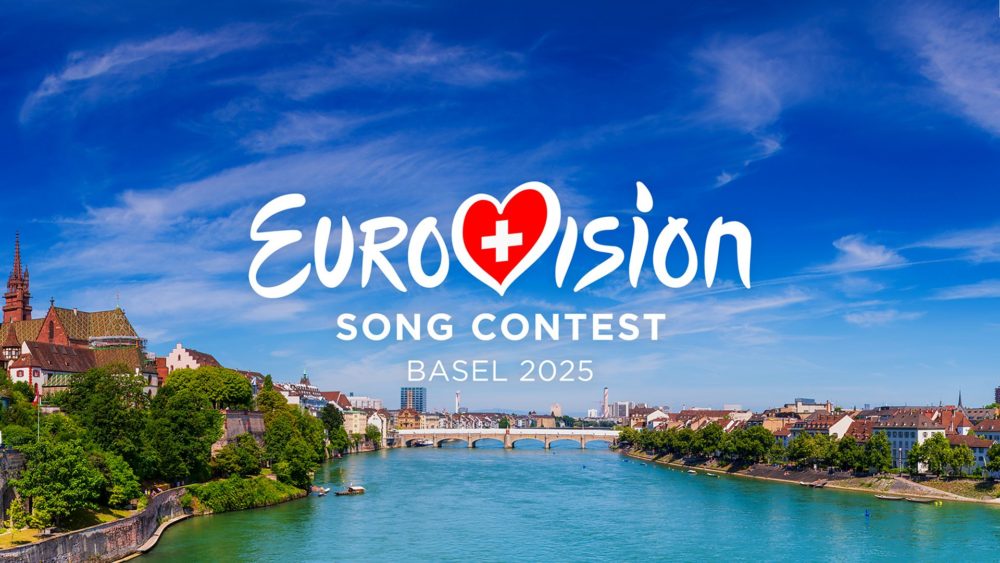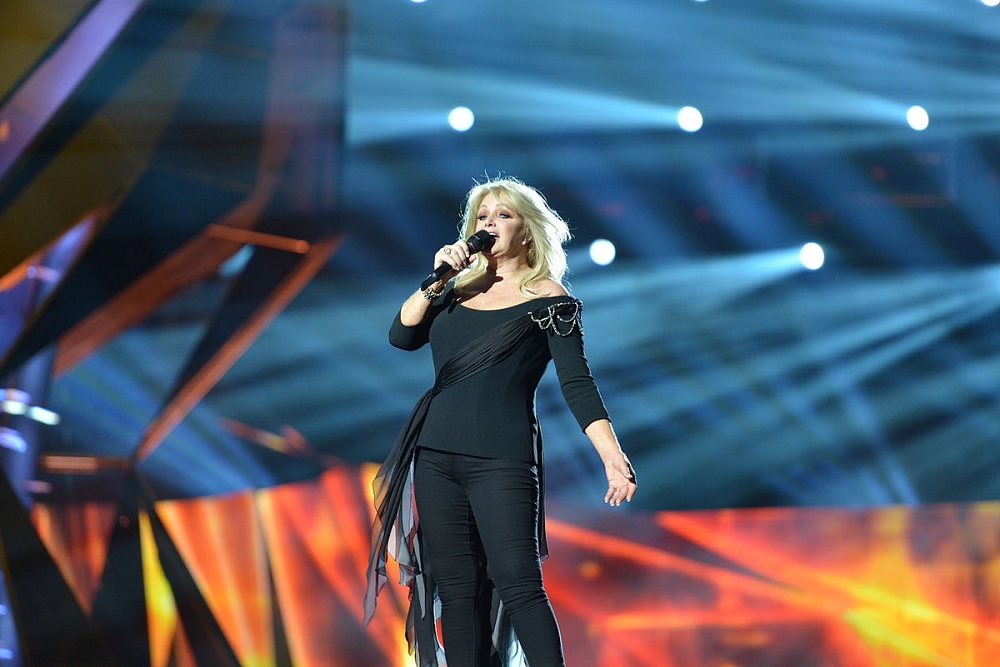Eurovision 2025: It’s time the UK’s indigenous languages were heard

Stephen Price
A letter from the European Broadcasting Union (EBU) has dashed petitioners’ hopes of S4C pulling together a bid for Wales to compete in Eurovision in 2025.
ON 20 January, MSs discussed a petition that had been created by Nation.Cymru calling for Wales to compete in the Eurovision Song Contest.
Bakel Walden, from the EBU, wrote: “As the BBC continues to participate, and remains the rights holder in the United Kingdom, this means an entry from the individual nations of the UK is therefore not possible at the Eurovision Song Contest.”
Initially, the Committee considered the petition and agreed to write to the European Broadcasting Union (EBU), copying in S4C to seek further information about what the process would be for Wales to be able to join or submit an application to the Eurovision Song Contest.
The Senedd Petition website shares: “The Committee accepted that the Welsh Government’s position was clear and therefore would close the petition, whilst ensuring any response from the EBU is shared with the Members, to enable them to pursue as individual members.”
Welsh language entry
Wales, the land of song – a European country with one of its oldest spoken languages. And yet we are voiceless when it comes to participating in the Eurovision Song Contest.
But not being able to compete as a nation shouldn’t mean we have to accept the status quo – we should now be demanding as a minimum that the Welsh language and other regional languages of the UK’s component countries are represented in the same way countries such as Belgium honour their unique cultural and linguistic make up.
Ahead of the 2025 event, we in Wales should be demanding true representation in both participants and language.

A bilingual nation, Belgium has two national broadcasters, one for Flanders and one for Wallonia and both are members of the EBU, and the country diplomatically takes it in turns to send a song.
Echoing a desire to see Welsh and the UK’s other indigenous languages represented, Matt Howells told Nation.Cymru: “Competitions such as the Pan-Celtic Song Contest aren’t televised and Celtic languages have only been heard twice and very briefly at Eurovision.
“Junior Eurovision and Eurovision Choir aside, the only Welsh ever heard on the Eurovision stage was when Lucie Jones said ‘Diolch yn fawr iawn” after her performances in 2017.
“Regional languages deserve an airing and Wales is in a prime position to send a song in Welsh. That matter of course is for the BBC.”
Welsh participants
Many Welsh artists have represented the United Kingdom in the past including Mary Hopkin in 1970, Emma in 1989, Jessica Garlick in 2002, Bonnie Tyler in 2013 and, more recently, Lucie Jones in 2017.
There was also Joe Woolford, from Rhuthun, who with Jake Shakeshaft from Stoke-on-Trent, competed in Stockholm in 2016 with the song “You’re Not Alone.”
There has, however, only been one Welsh Eurovision winner – Nicky Stevens, as a member of Brotherhood of Man, in 1976.
And, importantly, there has not been a single Welsh language entry despite Welsh being an official language of Wales.
Last year, however, a guerrilla entry was put forward from Wales with the song Anfonaf Angel by Sara Davies as part of a campaign for the nation to compete in the celebrated competition as a nation.
‘Not eligible’
Wales competed in Junior Eurovision in 2018 and 2019 but has always been represented by the United Kingdom at the main event.
Phil Jackson, Associate Head of Media at Edge Hill University and expert on all things Eurovision, told Nation.Cymru that it would be difficult to see a Welsh entry while the BBC remained the main public service broadcaster in Wales.
“Wales is currently not eligible to be a competitive country as we compete as the United Kingdom,” he said.
“Devolved government does not mean separate participation, as the Eurovision Song Contest is populated by the main member public service broadcaster of each country.
“For the UK it’s the BBC, although S4C are members of the European Broadcasting Union.”

Continued calls
In 2021, Plaid Cymru pledged in their manifesto that they would prepare for Wales to enter the Eurovision Song Contest as a nation in our own right if they were to win power.
As part of their pledges for Culture, Media and Sport in Wales, Plaid Cymru have said that they will “prepare a bid” for Wales to enter Eurovision as an independent nation.
Cân i Gymru
In the 1960s, it was proposed for the first time that Wales should enter the Eurovision Song Contest as an independent nation. As a result of this, the music festival Cân i Gymru was launched – which is still held annually in March. The festival would have acted as a national selection for Wales.
The bid to enter Eurovision as an independent nation was unsuccessful but Wales has still taken part in several other EBU events, including Jeux Sans Frontières, Eurovision Choir and the Junior Eurovision Song Contest.
The BBC
Lynn Kenway of Eurovision Times concurred that while the BBC was in charge, Wales would not be represented.
“Although we’ve seen Wales compete in the Junior Eurovision in 2018 and 2019, I don’t see how they can possibly compete in the adult version whilst the BBC is still officially the UK’s broadcaster for Eurovision,” she said.
“If the BBC ever gave up being the broadcaster, then we may see the possibility of different broadcasters picking it up – as United Kingdom Independent Broadcasting did for Junior Eurovision.
“Then we could see nations entering rather than a United Kingdom entry, but whilst the publicly-funded BBC runs the show, they will want to represent the whole of the United Kingdom.”
Dr. Paul Jordan, expert on the Eurovision Song Contest, said that one possible solution was for the nations of the UK to take turns in putting up an act.
“It may technically be possible to devolve the entry each year but I think it would probably still end up being a UK entry,” he said.
Petition
In 2021, a petition was created calling for an independent Welsh entry in the Eurovision Song Contest.
The petition came about after the UK scored ‘nul points’ for only the second time in its history.
At the same event, the UK’s vote announcer Amanda Holden was also criticised after she made a joke of not understanding the difference between French and Dutch.
“Bonsoir. Goedenavond,” she said. “That is good evening in French and Dutch although I’ve got absolutely no idea which is which.”

Whilst that petition, obviously, didn’t get the desired outcome, it’s not dampened the enthusiasm and defiance of Welsh fans, and whilst petition after petition gets us nowhere, we shouldn’t lose hope, and should also be calling to include entries from the UK’s indigenous languages.
Wales under the spotlight
Eurovision super fan, Luke Prisk from Brynmawr said: “Eurovision fan or not, an opportunity to shine on a European, indeed worldwide stage should be a given, not something we need to fight for.
“Why shouldn’t we be able to celebrate our rich culture, language and talent in the same way other countries do?
“I’m super excited about this year’s event, but in the back of my mind I can’t overlook the fact that my flag isn’t officially represented and was once even banned.
“If we can’t get in as a nation in our own right, why shouldn’t there be a song in Welsh since it’s one of our official languages and is native to the land?
“Having Welsh, Irish, Scottish Gaelic, Cornish and English represented once every five years should be a given, not a radical idea.
“Why shouldn’t young people who speak those languages get to see and hear themselves on the world stage?”
Support our Nation today
For the price of a cup of coffee a month you can help us create an independent, not-for-profit, national news service for the people of Wales, by the people of Wales.






WALES in Eurovision song contest Wales Olympic team nothing to do with the Disunited kingdom Free from England and also as Wales in the United Nations every country has the right to rule themselves
‘Peuple sans littérature et sans histoire’, pissous, speak white frenchies, bande de colons, gang d’habitants, à cause tu fais simple de même, vous êtes juste nés pour un p’t*t pain, f**king frogs… it has long been mal à shop for Québecers. Reason enough to revolt. Quietly, of course. At least on the surface. For there was nothing tranquil about the Quiet Revolution, which unfolded through strides in economic and cultural autonomy and finally protected bilingualism with the adoption of the Official Languages Act (1974). The Québécois language, spoken loud and clear, could at last serve as a lever to reclaim… Read more »
The other tongues of these islands should be represented far more but I suspect they never will be with the BBC preferring English due to England’s bigger population and viewing figures. Ultimately, Cymru will need to gain independence for it’s voice to be finally heard.
Well said! We can complain all we like, the reality is that only independent states take part.
For me, the Eurovision Song Contest is almost an emotional event: the list of participants, many former soviet block nations are there, tall and proud.
Independence. The sooner the better.
Perhaps Eurovision itself could require that all entrants should adequately represent their de jure languages.
Wales has featured in countless programmes, movies and performances, but did you know there’s always been an unspoken condition that we never get a mention?
Anything that features Welsh talent is referred to as from England or Britain in the cast credits. Its rather obvious and rather scary that this has been allowed to continue for so long.
We’re being purposely stifled, and Eurovision is just one of many things that needs to change it’s rules.
I suggest everyone reads the rules on the contest and not manipulate it to what they want. What would happen if the Welsh government was asked to contribute to funding of the contest so thereby sharing costs out around the UK, all hell would break out in respect of wasting money